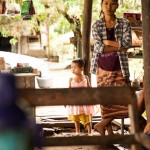The human rights impacts of petroleum and energy have historically been either severely negative of significantly positive, with little space in between. Norway has used its oil wealth to generate shared prosperity across its population, while Nigeria’s oil has heavily polluted fishing grounds while having no palpable impact on poverty rates across the nation. “The resource curse” and “Dutch disease”, where large revenues affect the national context well beyond the physical footprint of the operation, characterize common understandings of oil extraction in low-income countries.
Avoiding these outcomes requires attention to human rights impacts by companies, governments and civil society. There are particular human rights impacts associated with exploration, which has a broad footprint, compared to extraction, which generally has very small footprints, and transmission, which involves pipelines, railways or roads, which can increase or decrease local access to markets and goods, depending on how they are developed. Meanwhile, energy generation, whether from fossil fuels or renewable sources, inevitably benefits the recipients of newly generated power, while potentially leaving sub-populations behind.
The first case study below highlights the risks of oil and gas development at Tullow’s well sites in Uganda, where governance issues are compounded in a historically marginalized region of the country, pose threats to human rights years before first oil is produced. The second case study examines the risk of disparate impact on populations isolated from electrical grids when a power plant will increase energy supply in Myanmar.






Thank you very much